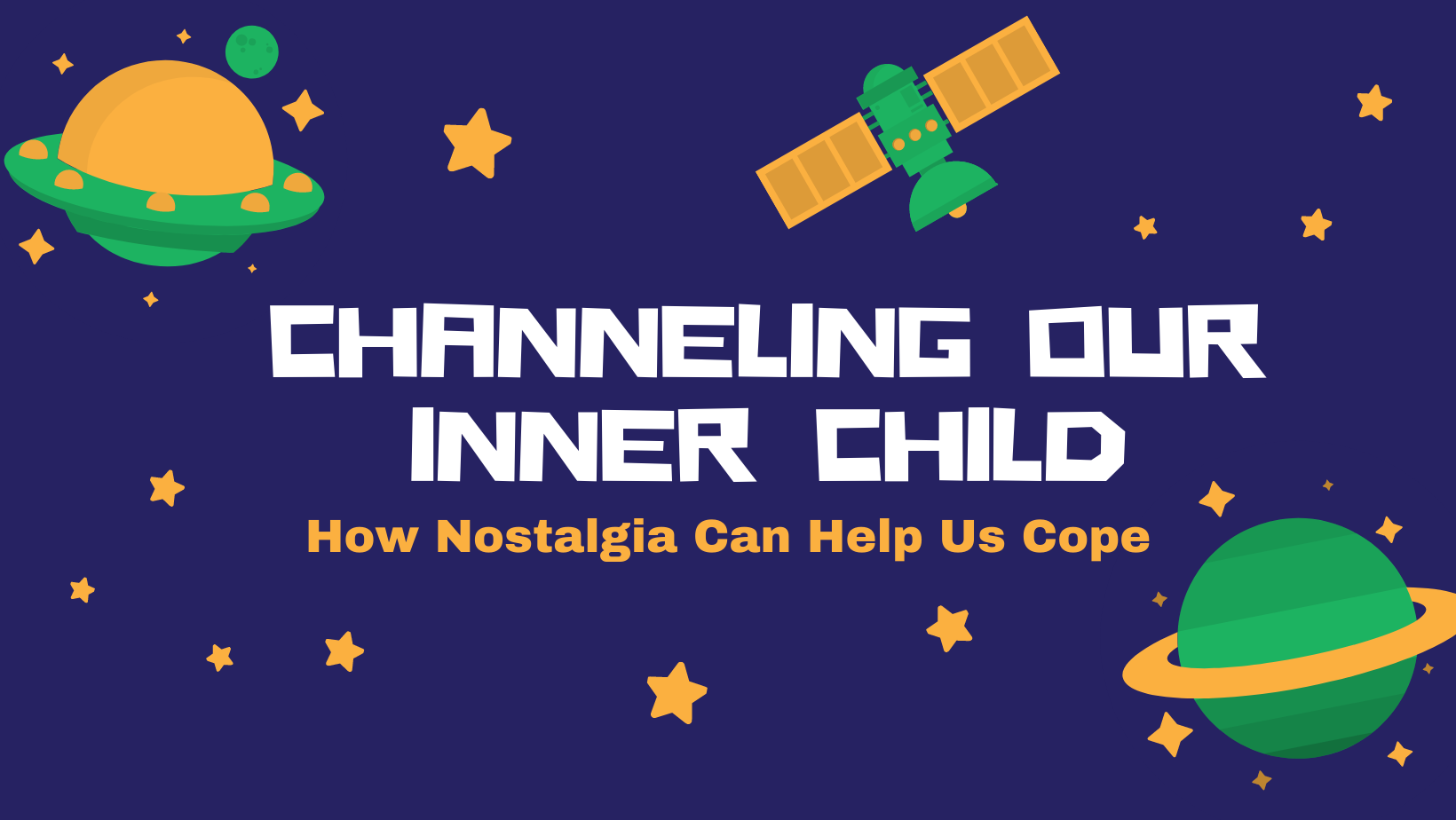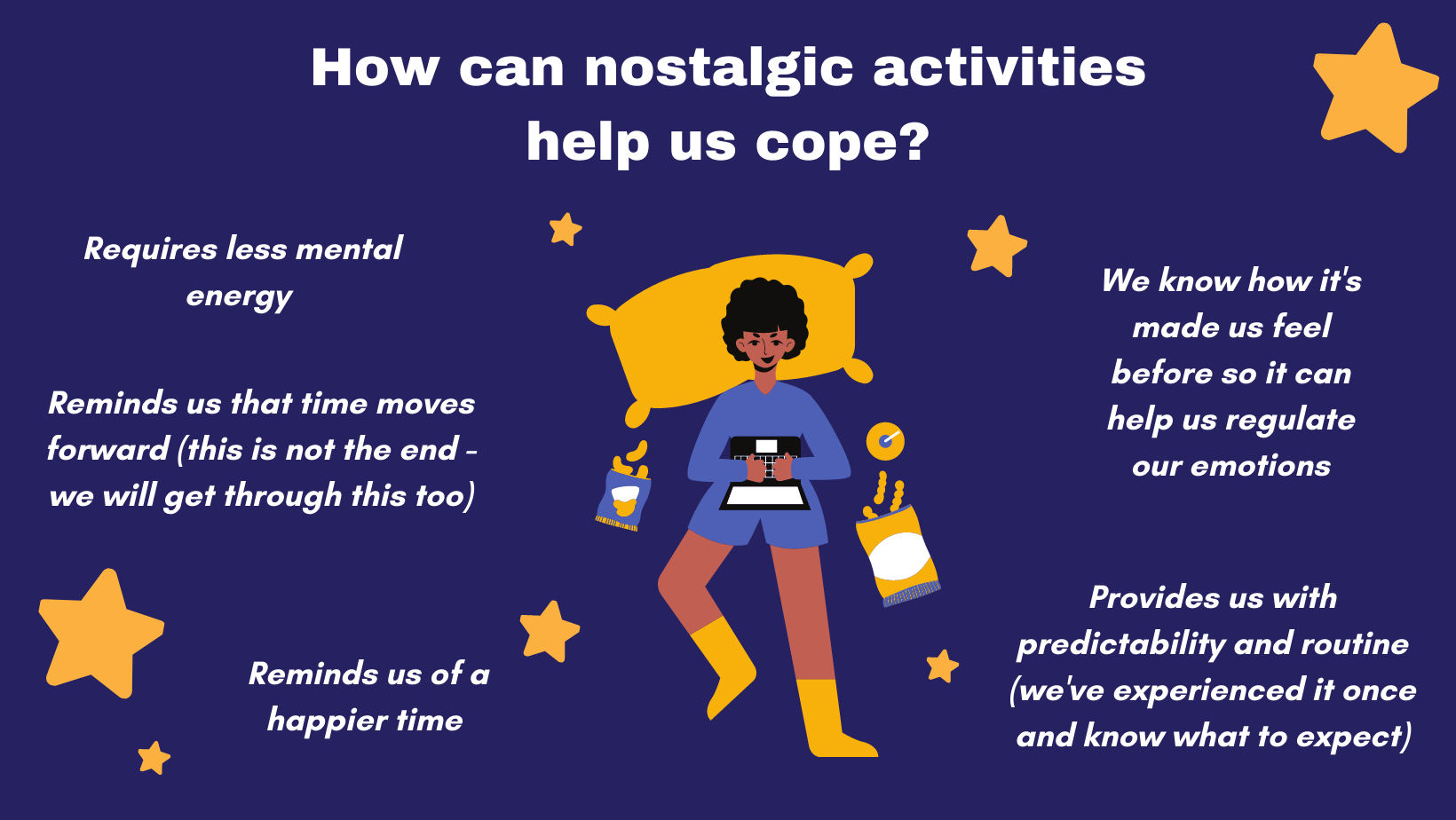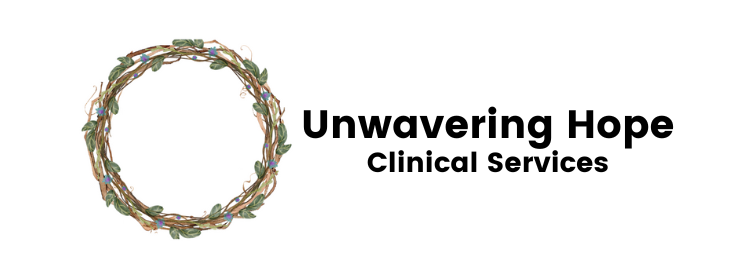
Ever since the COVID-19 pandemic began, more and more people have turned to the past to cope with the present.
According to a recent study which tracked the ways in which we consumed entertainment during the pandemic, more than half of us reported finding comfort in revisiting old shows and music that we enjoyed in our youth. Why are so many of us re-watching Friends and Buffy the Vampire Slayer during lockdown? Why are people re-listening to bands and albums they loved during their youth?
Research suggests that it has less to do with lockdown boredom and more to do with coping. In fact, various studies prove that turning to nostalgic interests is an effective coping tool that can support us through times of great stress or uncertainty – and what better example of collective global stress and uncertainty than the COVID-19 pandemic?
For many of us, the COVID-19 pandemic has negatively affected our mental health. Amidst the various lockdowns, the social distancing, the grief and loss, the ‘new normal’ – and most importantly, the overarching feeling of simply not knowing what will happen next – has been the cause of great collective stress. Various studies have even found a direct link between the COVID-19 pandemic and a rise in acute stress disorder, anxiety and depression.
As many of us may know, uncertainty is anxiety’s closest relative. Prolonged exposure to feelings of uncertainty and stress impact our mental wellbeing in many harmful ways. In the long term, continuous stress and uncertainty is exhausting for our bodies. Our brains work in overdrive to help keep us prepared for potential threats, and this constant stress activation can bring about many different mental and physical concerns.
When we are faced with prolonged stress and uncertainty, we have a need to cope and manage this stress. We seek comfort.

It is no surprise, then, that turning to long-forgotten interests that once provided us with joy is a key source of comfort. Nostalgic activities activate memories of routine and predictability. Watching an old movie or re-reading a favourite book can provide us with security and help us remember more meaningful, happier times. Routine, security, predictability – these are all feelings we certainly need more of during times of pandemic stress.
Most of all, it can provide us with hope. As we engage in old hobbies and interests, we remember that time moves forward. We survive through difficult events. We are resilient and we will make it through this, too.
Until then, there is no shame in re-watching that one episode of The Office for the 500th time. And if you need a little extra support, Michelle Aziz Counselling is accepting new clients.
***
Article written by Ruxi Gheorghe MSW Candidate, Clinical Intern with Michelle Aziz Counselling.
References
FioRito, T., & Routledge, C. (2020). Is nostalgia a past or future-oriented experience? Affective, behavioral, social cognitive, and neuroscientific evidence. Frontiers in Psychology, 11, 1133–1133. https://doi.org/10.3389/fpsyg.2020.01133
Gammon, S., & Ramshaw, G. (2020). Distancing from the present: Nostalgia and leisure in lockdown. Leisure Sciences Journal, [Advance online publication], 1–7. https://doi.org/10.1080/01490400.2020.1773993
Lin, D., Friedman, D., Qiao, S., Tam, C., Li, X., & Li, X. (2020). Information uncertainty: a correlate for acute stress disorder during the COVID-19 outbreak in China. BMC Public Health, 20(1), 1867–1867. https://doi.org/10.1186/s12889-020-09952-3
MRC Data. (2020, April). COVID-19: Tracking the Impact on the Entertainment Landscape [Report]. https://static.billboard.com/files/2020/04/COVID-19-Entertainment-Tracker-Release-1-1586793733.pdf.
Sedikides, C., & Wildschut, T. (2018). Finding meaning in nostalgia. Review of General Psychology, 22(1), 48–61. https://doi.org/10.1037/gpr0000109
Yeung, T. T. C. (2020). Did the COVID-19 pandemic trigger nostalgia? Evidence of music consumption on Spotify. COVID Economics, 44(25), 154–184. https://cepr.org/sites/default/files/news/MusicConsumption.pdf
